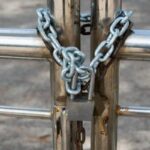OneMain Financial is a common name for individuals seeking personal loans, but many borrowers might not fully understand their auto loan terms, especially concerning vehicle repossession. It’s crucial to know where you stand with your auto loan and the potential risks involved if you face financial hardship. OneMain Financial, while not a traditional bank, operates as a consumer finance company, specializing in loans for those who may not qualify for typical bank loans. This distinction is important when considering their policies on asset recovery, such as car repossession.
Understanding OneMain Financial and Auto Loan Repossession
When you secure an auto loan with OneMain Financial, your vehicle acts as collateral. This means that you pledge your car as security for the loan. If you fail to meet the repayment schedule outlined in your loan agreement, OneMain Financial has the legal right to repossess your vehicle. The question then becomes, when will OneMain repo my car?
Generally, OneMain Financial doesn’t initiate repossession immediately after a single missed payment. The exact timeline can vary and is often influenced by state laws. Most jurisdictions provide a grace period, meaning repossession proceedings usually begin after you are delinquent for a couple of months. However, it’s vital to be aware of specific state regulations, as these can significantly alter the repossession timeline. For example, states like Mississippi have stringent laws where a vehicle can be repossessed as soon as a loan defaults, even for minor infractions like a late fee. This highlights the importance of understanding the specific laws in your state regarding auto loan defaults and repossession.
The Possibility of Lawsuits and Wage Garnishment
Beyond repossession, OneMain Financial also has the option to pursue legal action if you default on your loan. If you fail to repay your debt, OneMain can file a debt collection lawsuit against you. Their aim in doing so is to obtain a court judgment. If they are successful in securing a judgment, they can then pursue further actions to recover the debt, which may include wage garnishment. Wage garnishment is a legal procedure where a portion of your earnings is directly withheld to repay your debt to OneMain Financial.
Bankruptcy and OneMain Financial Debts
For individuals facing overwhelming debt, including auto loans with OneMain Financial, bankruptcy can be a viable option. Filing for bankruptcy can provide a legal framework to manage and potentially resolve debts. Chapter 13 bankruptcy is often considered if you wish to retain your vehicle. It allows for a reorganization of your debts, enabling you to catch up on missed payments over time through a structured repayment plan. On the other hand, Chapter 7 bankruptcy might be suitable if you want to eliminate the debt entirely without repayment. This option involves liquidating certain assets to pay off creditors, but it can discharge many types of debts, including auto loan deficiencies in some cases.
If you’re struggling with your OneMain Financial auto loan and are concerned about repossession or legal actions, it’s crucial to understand your rights and explore your options. Consulting with a legal professional can provide personalized guidance based on your specific situation and state laws, helping you navigate these challenging financial circumstances effectively.

